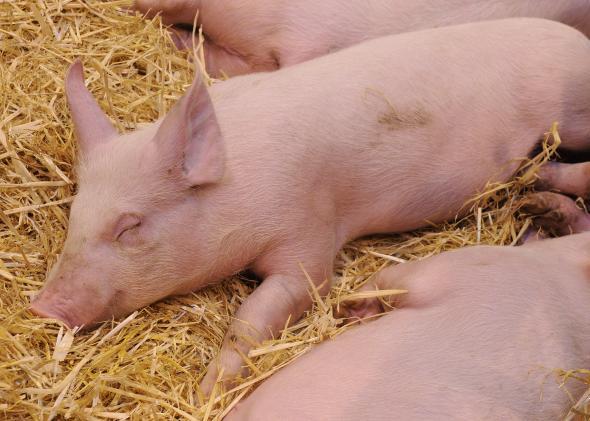This question originally appeared on Quora.
Answer by Andrew Roberts, Food Scientst:
TL,DR: Judging diarrhea scores of pigs.
I once had a job in university working on a research study on pigs. This was the worst job I’ve ever had and usually ranks high on the list when the topic of bad jobs comes up at a gathering. It was disgusting and uncomfortable in many ways: physically, mentally and ethically.
The basic premise of the study was that bacteriophage, viruses which infect bacteria, may have applicability in reducing the prevalence of nasty foodborne illness causing bugs in pig populations. Pigs are full of bacteria of course, but these viruses were selected based on their targeting of bad bacteria. Since these bacteria live in the pigs, the idea was that the virus could stop the spread of the bugs between them.
Every eight weeks, we received very cute pigs, about 1 week old, and placed them in a biological containment facility for animal experiments. This was a concrete bunker-type basement with no windows and massive double-doored rooms filled with sterilizer for entrance and exits. Once beyond these rooms, we entered a jail-type hallway with doors marked with the animal and experiment information. We would change, first into coveralls, socks, and sock covers. Next, we opened the first level of doors, put on rubber suits, ear plugs, goggles, rubber boots, and masks. Then we ‘showered in’, got our equipment, and entered the rooms with the pigs.
The pigs were first infected with a massive dose of bacteria, before having their environment sprayed with a massive dose of bacteriophage. In order to monitor their health, we took weights and rectal temperatures daily. We also observed “diarrhea scores.” When one removes the thermometer from the rectum of a sick pig, it induces a bowel movement.
The diarrhea score system:
1. pasty
2. shooting out of the pig at an angle around 100 degrees
3. shooting out of the pig nearly straight at 180 degrees
When the pigs got to about 30 kg, this process became very difficult, with most of us complaining of back problems from wrangling and holding the pigs.
Perhaps the most dramatic part about the setting was the steam. The holding pens were steam cleaned, so the facility was always very hot and steamy. This added to the heat moisture of the rubber clothes, but also set the dark and scary tone of the place very well.
I usually felt like an evil torturer from a horror movie, but I didn’t get the kind of pleasure that made me laugh evilly. We sometimes laughed out of disgust or frustration. The day that we put the pigs to rest was always particularly traumatizing for me.
… all in the name of food safety
Answer by Hannes Hoffmann:
Harvesting poplar fluff from a mobile moored hydrogen balloon.
Summer 2001, I had just come back from a seven month voyage on a tall ship. No clear plans what to do next. Landlubber’s life was strange. Browsing the web, I found PAP(P)ILLON GmbH, a company using poplar fluff in the role of down (in beds).
It was, well, a start-up: They had changed laundry dryers into machines to separate the fluff from the fruits. Giant nets of silky white fluff filled an entire hangar at an abandoned air force base that was the company’s address.
To extract the fluff, you need to harvest the fruits. Poplar trees are dangerous to climb, and stands of the mazimowicii race (with the longest fluff fibers) are inaccessible for hydraulic platforms. Since tree seeds were harvested for other uses as well, a solution had been engineered before: A moored balloon, with a winch to maneuver, a basked with a passenger on board; the winch based on a small caterpillar.
Both the balloon system and fluff harvest did not exist anywhere else.
I wrote them a mail in order to say that on a tall ship, you work high up in the rig, it moves, you work in shifts; you estimate weather and some more parallels.
I ended up in charge of it all, living in the woods for two months. First month was with a crew of Romanian loggers. We had no common language; some kind of Asterix type latin was the best try. After their month was over, the company asked me if I knew people. So the second month, a group of former crewmates I knew from sailing was living with me in the woods, in tents and improvised shelters. We flew the balloon when wind was low, often at night. The highest it could go was 100 meeters, which we often did to enjoy the view.
Over time, I got used to pump hydrogen gas through a fire hose, wash my clothes in a swamp, and clear landing pads by chainsaw. However, it was impossible to explain any of that to local villagers, mustached forest wardens, and police officers.
Pappillon GmbH never made it, economically. When I left, harvesting season was over, and the balloon was never deployed again. No such system is operational today.
I still sleep under a bed cover made from poplar fluff.
More questions on jobs:
